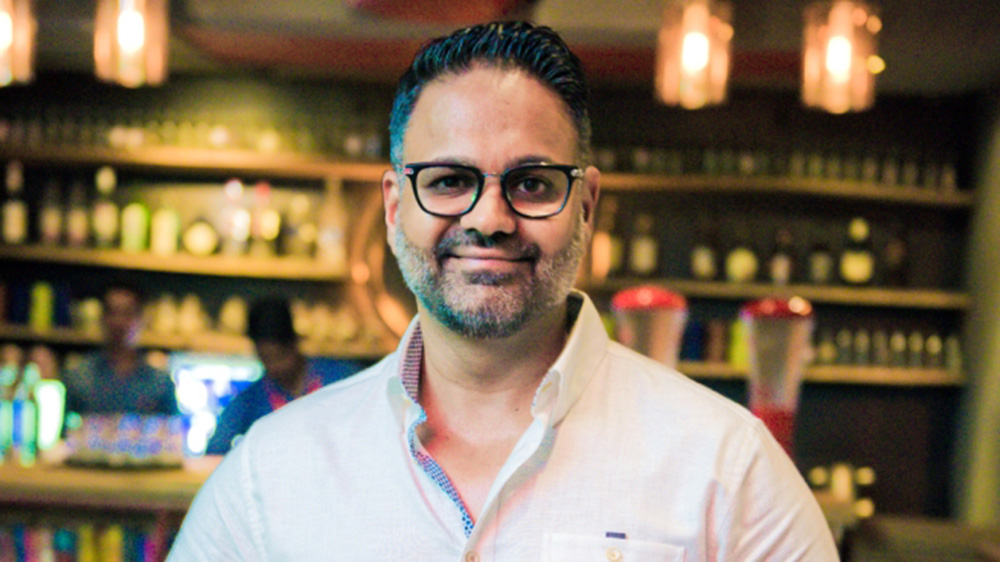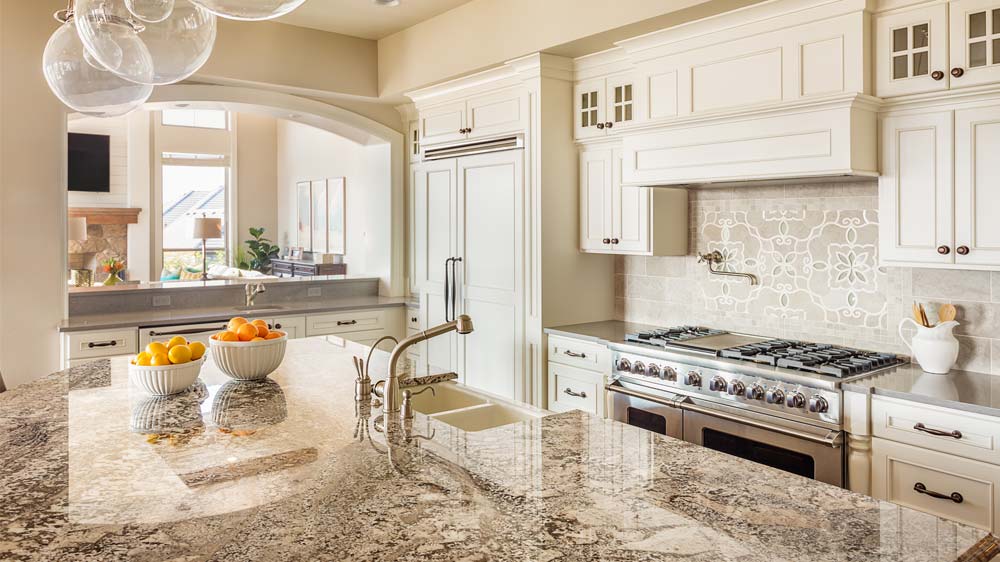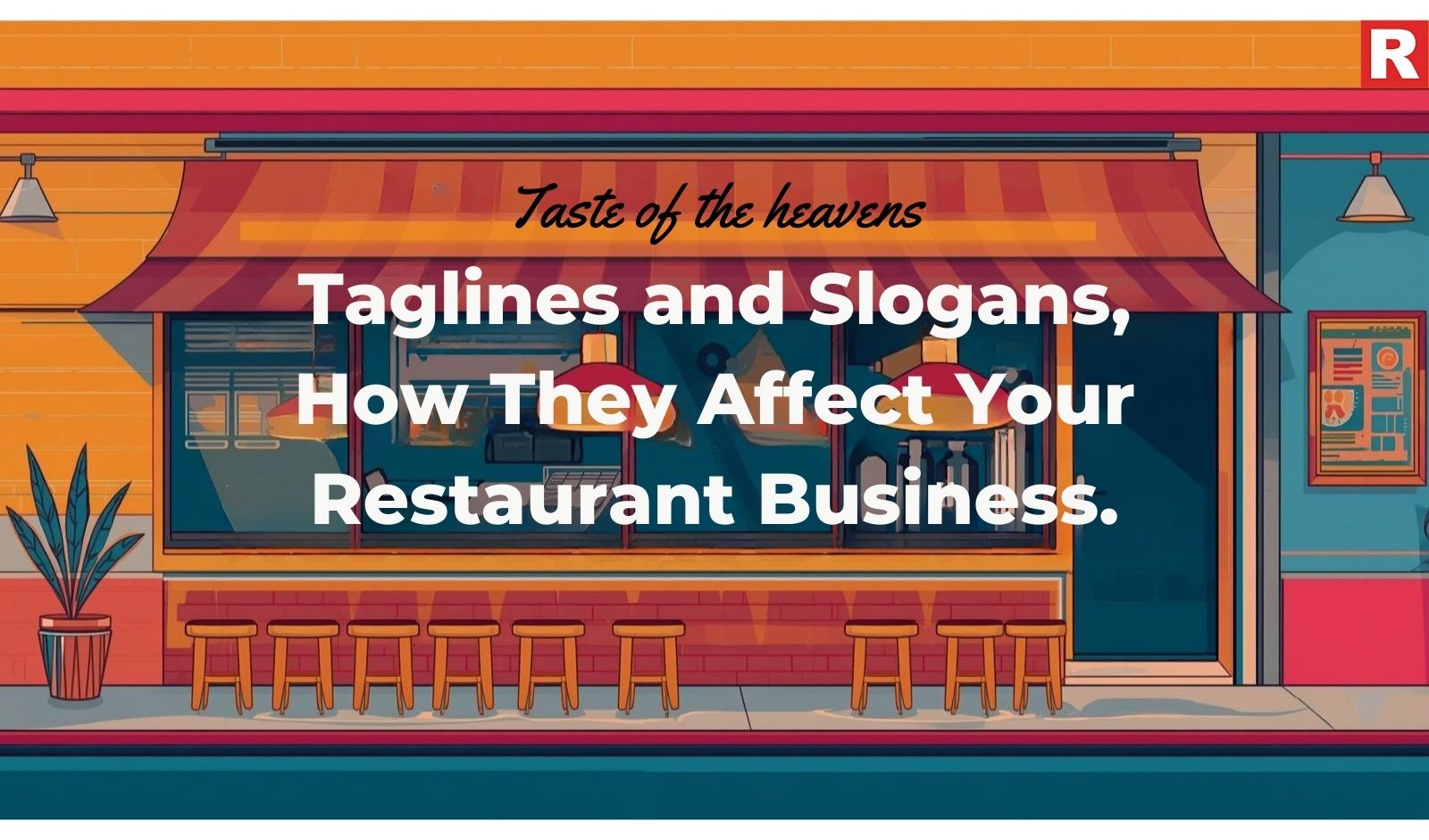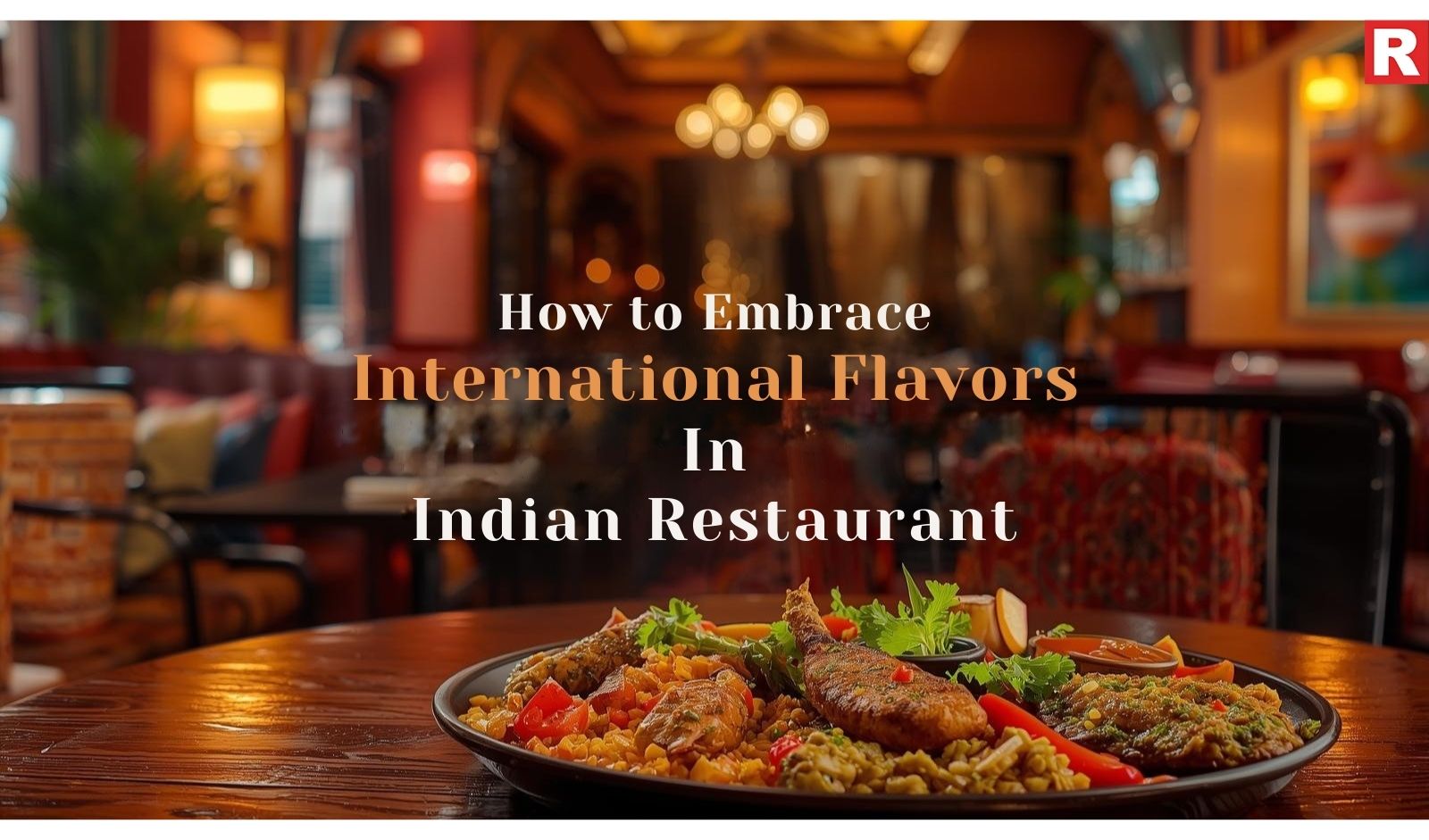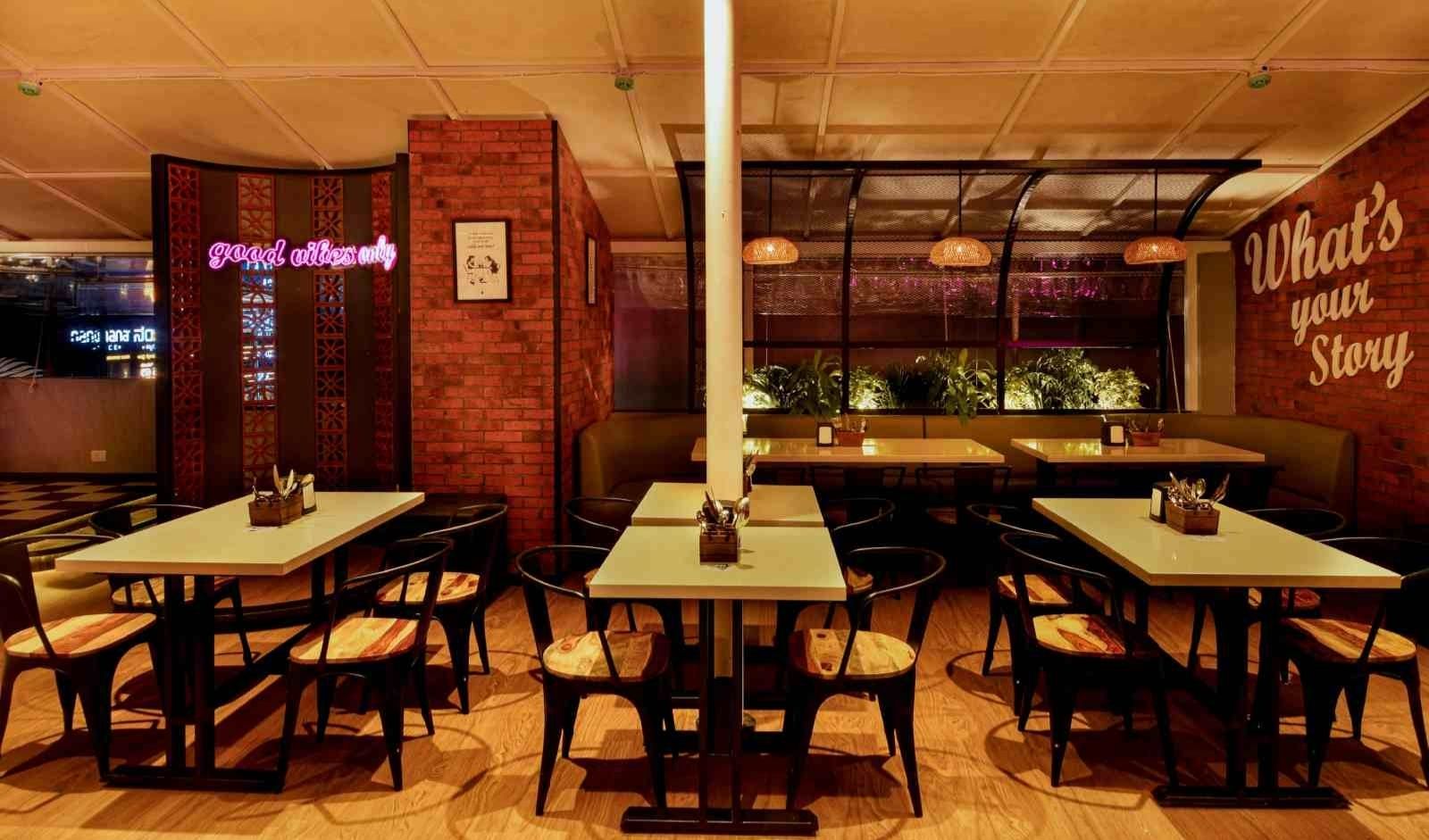
The alcohol license is more than just a piece of paper for Indian restaurateurs; it's a key component of the dining experience and a gateway to a significant cash stream. However, India's alcohol sales and service regulations are extremely complex, dynamic, and frequently the cause of significant challenges. It is a system that requires strict adherence to a maze of state-specific rules and an endless cycle of transition because of changes in governmental policy. A business can no longer afford to take an indifferent stance to these restrictions if it hopes to not just survive but flourish.
This full article will offer an in-depth analysis of India's changing alcohol regulations. We will examine the system's complexities, list the main obstacles and possibilities, and offer practical guidance to help restaurateurs successfully negotiate this complex environment. This is an approach for mastering the legal rules and creating a successful and legal beverage operation, not merely a guide for obtaining a permit.
Read more: 5 Reasons to Open Your Café Around College Campuses
Understanding the Legal Landscape
In India, each state has the authority to control the sale, service, and taxation of alcohol, as opposed to a single federal law. Because of this, the legal system is extremely diverse and scattered; for example, a rule that is applicable in Delhi can be quite different in Maharashtra or Haryana.
- State Taxation Departments: The state tax department is the main body in charge of regulating alcohol. License issuance, excise duty collection, and regulation monitoring fall under their authority. Every state has a distinct set of regulations, encompassing various license classifications, application processes, and associated costs.
- Prohibition and Dry Days: The sale of alcohol is prohibited in several states, including Gujarat, Bihar, and Mizoram, where it is either completely or partially prohibited. Furthermore, all restaurateurs are required to strictly abide by the mandatory "dry days" that are enforced by states throughout India on public holidays and religious festivals.
- Zoning & Location Restrictions: A restaurant's eligibility for a liquor license is subject to strict rules in several states. This can involve bans on alcohol service close to hospitals, schools, and places of worship. These regulations are frequently a point of disagreement and require thorough research before venue selection.
- The Judiciary's Role: Indian liquor laws have been greatly influenced by the judiciary. The industry has been greatly impacted by landmark rulings, such as the one that forbade the sale of alcoholic beverages close to state and federal roadways, which forced many businesses to close or relocate. It also highlights the importance of ongoing attention to detail.
Know more: How Profitable is the Restaurant Business in India?
The Licensing Process: From Application to Approval
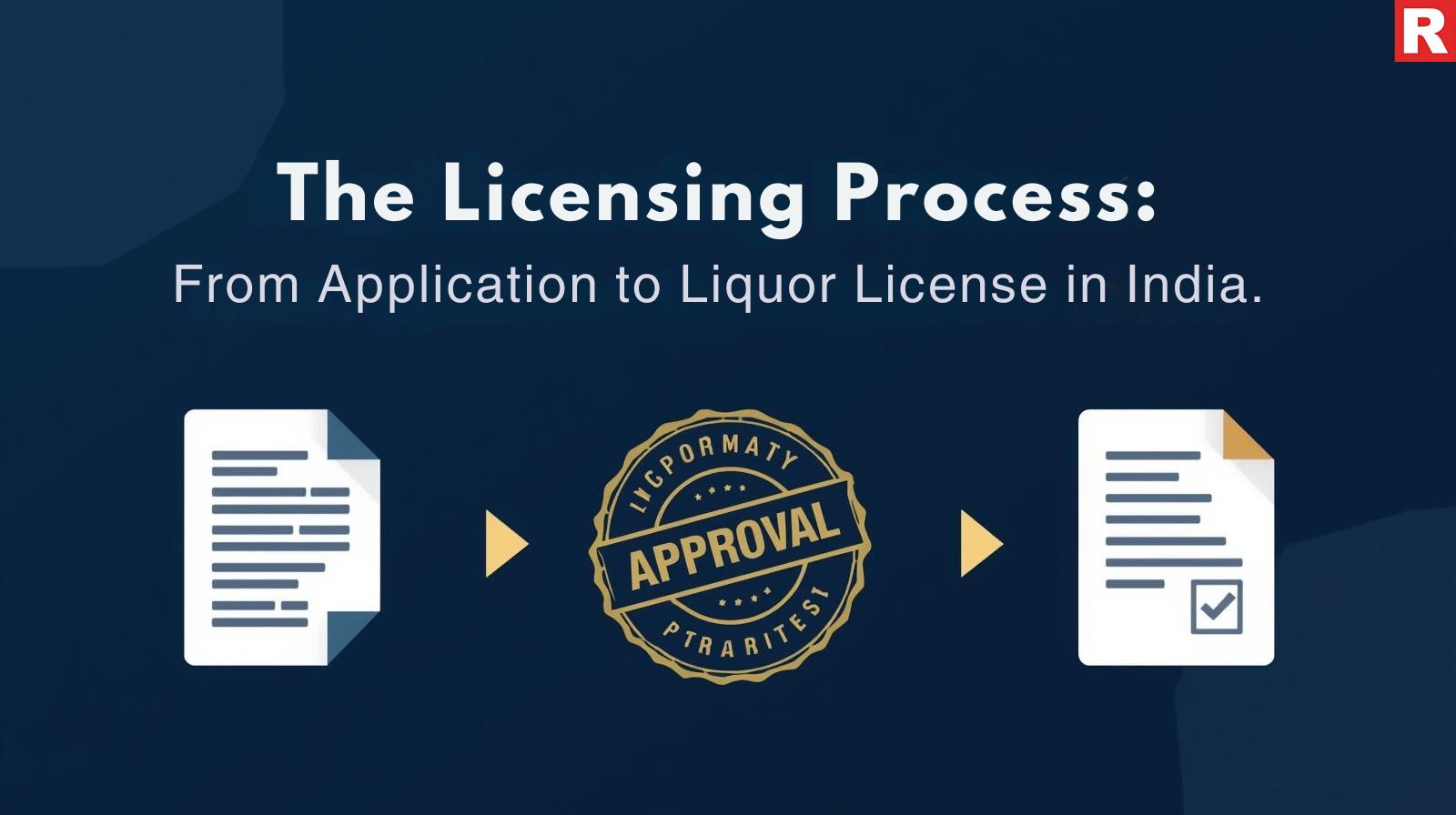
In India, getting a liquor license involves a number of steps and can be costly and time-consuming. A well-prepared restaurateur needs to be patient and have a full understanding of the requirements when going through this process.
- Select the Correct License Category: Selecting the appropriate license category for your business is the first step. Typical classifications consist of:
- License for Restaurants (FL-2/FL-3): For businesses that sell food and beverages.
- Bar License (FL-4): Usually for businesses where the main product is alcohol.
- License for Beer and Wine: For restaurants that want to serve just wine and beer.
- Temporary Event Licence: For private parties or special occasions.
- Documentation is Key: The application process requires a lengthy amount of documentation, which can differ from state to state. A full floor plan of the restaurant, property records, No Objection Certificates (NOCs) from various government agencies (such as the police, fire department, and others), the business strategy, and proof of identification and residence for each partner or director are usually included. Serious delays may result from any error or missing document.
- The Inspection Phase: Following submission of the application, representatives from the Taxation Department, local law enforcement, and other relevant organizations carry out a number of inspections. They will examine the property, confirm that all supplied paperwork is accurate, and make sure that all rules are being followed.
- Fees & Charges: Be ready to pour out an ample amount of money. A one-time application fee, an annual renewal fee, and extra fees that differ from state to state are all included in the cost of a liquor license. It is a significant financial commitment because these costs might amount to lakhs of rupees.
What's new: How Taglines and Slogans Affect Your Restaurant Business
Key Challenges and How to Overcome Them

It's not easy to keep up with India's alcohol regulations. The first step to conquering these obstacles is realizing they exist.
- Complexity and Lack of Uniformity: The main obstacle is differences in laws between states. A restaurateur who operates restaurants in Delhi and Mumbai needs to be familiar with two distinct sets of rules.
Solution: Employ an agency that specializes in tax law for the state in which you operate, or hire a local legal expert. They can help you navigate the procedure and guarantee that you are fully in line.
- The "Grey" Area of Interpretation: Rules are frequently unclear and subject to various officials' interpretations. Unexpected requests and delays may result from this.
Solution: Continue to have a friendly and open relationship with local tax authorities. Maintain precise records of all conversations and transactions at all times.
- Unpredictable Policy Changes: Recently implemented changes in Delhi and other states demonstrate how quickly governments can alter their alcohol laws. Businesses that have made significant investments in their beverage programs may suffer greatly as a result.
Solution: Keep informed of all industry and governmental announcements. Join local restaurant associations, which frequently provide timely updates and advocate on behalf of the sector.
- Compliance and Enforcement: The restaurateur is in charge of making sure that regulation is maintained. Heavy fines, license suspension, or even closure may result from breaking the restrictions, such as supplying alcohol to minors or on dry days.
Solution: Educate your employees on all aspects of serving responsibly. Establish a strict ID verification procedure and a well-defined policy for dealing with guests who are drunk or children.
Check out: How to Embrace International Flavors in an Indian Restaurant
Understanding Joint Ownership in the Restaurant Industry
Building a Profitable and Strategic Beverage Program
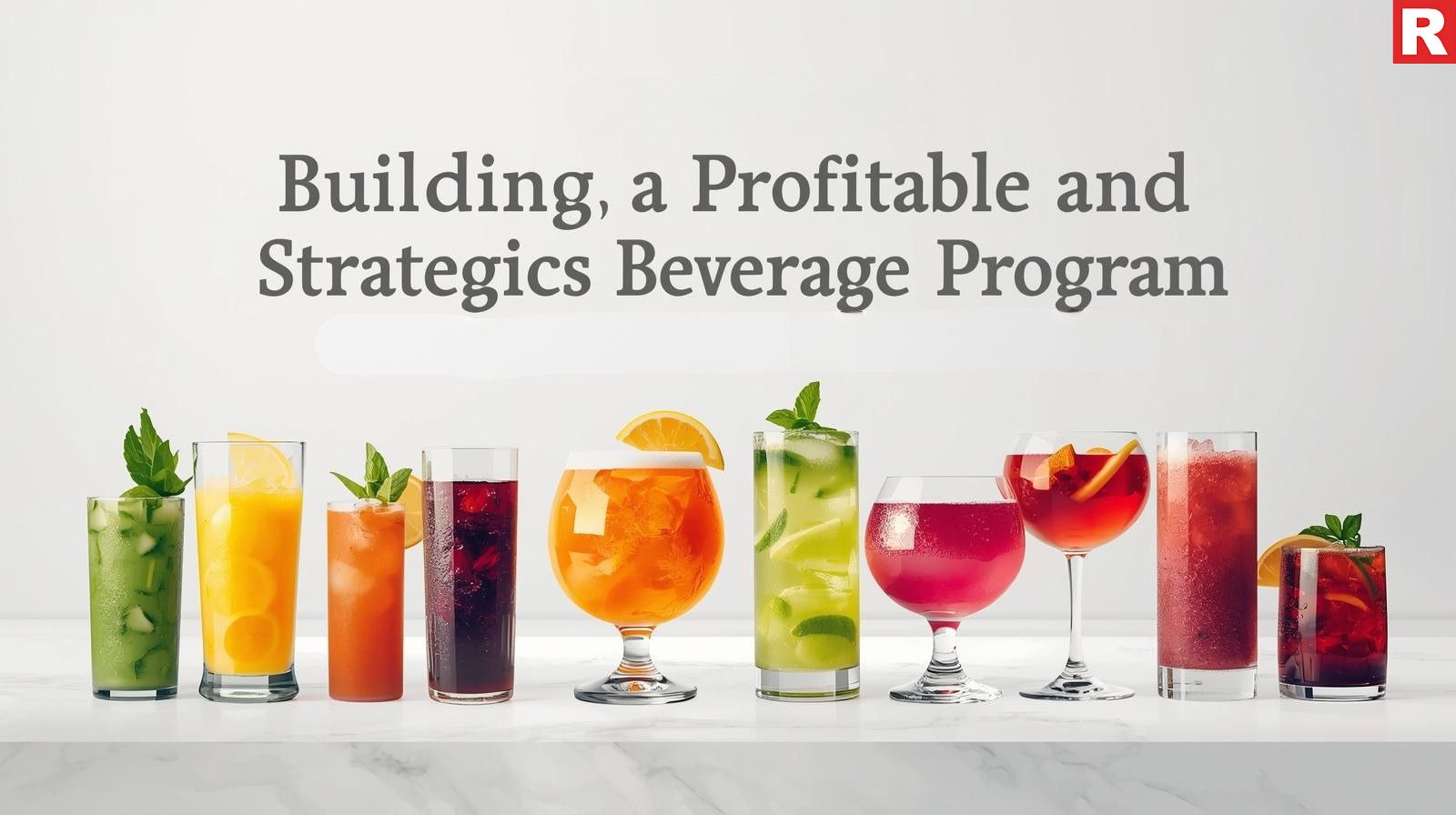
Despite the difficulties, a well-run beverage program has the potential to revolutionize a restaurant's profitability and reputation.
- Increasing Revenue: The profit margin on alcohol sales is usually higher than that on food sales. Your average customer spend and total income can both be considerably raised with a carefully chosen beverage menu.
- Differentiating Your Brand: Your beverage program could be a unique selling proposition (USP). You can differentiate yourself from the competition with a special lineup of craft brews, a well-chosen selection of premium wines, or an inventive cocktail menu.
- Creating a Social Hub: A well-managed bar can transform your restaurant into an enjoyable place for people, drawing them in for late-night parties or drinks after work in addition to supper.
Strategic Steps to Building a Profitable Program:
- Menu Engineering: Examine your sales information to determine which drinks are the most well-liked and profitable. Put them on the menu in a way that will boost sales.
- Staff Education: Invest in educating your waiters and bartenders about wine pairing, mixology, and appropriate serving techniques. A well-informed staff member can improve the visitor experience and upsell.
- Inventory Control: To monitor and control your liquor supply, put in place a strong inventory system. This aids in reducing expenses, waste reduction, and theft prevention.
- Strategic Alliances: Establish connections with brands and distributors of alcoholic beverages. They can provide staff training, tasting sessions, and marketing materials to promote your beverage program.
Read this: How to Find Good Staff for Your Restaurant
The Future of Liquor Regulation in India
India's liquor laws are gradually becoming more flexible, although this is not always the case. Some states are tightening regulations for social and political reasons, while others are loosening them to increase income and fight illegal alcohol.
- Digitalization of Licensing: A lot of states are switching to online application and renewal procedures, which should increase system efficiency and transparency.
- Emphasis on Responsible Serving: As governments and business associations work together to reduce underage drinking and drunk driving, there is an increasing focus on responsible serving and consumption.
- Growth of Craft Beverages: The flourishing craft whiskey, gin, and beer industries are advocating for more lenient laws that help small-scale manufacturers. Future licensing categories and regulations may result from this.
Conclusion
It takes a strategic approach, careful attention to detail, and a strong commitment to remaining educated to navigate India's changing liquor laws. A complicated, state-by-state legal system and unpredictable policy changes are just two of the major obstacles. However, there is a great chance to create a successful and profitable business for the smart restaurateur who takes an innovative approach to these restrictions. You may transform a regulatory obstacle into a major competitive advantage by investing in expert advice, encouraging a culture of responsible service among employees, and utilizing technology for adherence. A well-run beverage program is more than just an additional cost; it is a significant source of income and a crucial point of differentiation in a competitive industry. By taking a careful approach to regulations, you can protect your business and build a solid reputation for quality, which will guarantee that your restaurant's doors and its bar remain open and continue to serve customers for many years to come.

Barbeque Nation, India’s leading casual dining restaurant chain, launched its eleventh outlet in Bengaluru. The success of the existing outlets in the city has encouraged the team to spread its culinary delight to foodies in other parts of the city.
The new Bengaluru outlet is situated in Whitefield which is the IT hub and will attract majorly the students, corporates and residents of Whitefield. Spread over an area of 4,600 square feet, the grand new outlet is located at Virginia Mall in Whitefield. It is the 119th outlet in India.
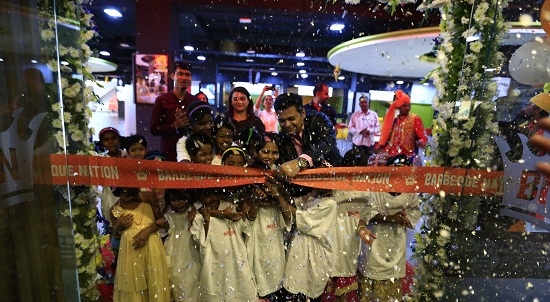
Ritam Mukherjee, Regional Manager-Operations, Barbeque Nation Hospitality Ltd, said, “Barbeque Nation is Bengaluru’s favourite destination for casual dining and that is evident from the way our restaurant chain has grown in the city over the years. Starting from the first outlet at Indiranagar in 2006, to the 11th today at Whitefield, we have come a long way in offering diverse culinary experiences and tastes to diners, that has distinguished us in many ways. Whitefield is one of the most important hubs for IT professionals in the city and we are witnessing a growing fondness for our proposition in the region, prompting us to launch a second outlet in the area, at Virginia Mall. We look forward to offering our guests a gastronomic delight unlike any other.”
Unveiling the expansion plans, Ritam told Restaurant India, “Barbeque Nation has grown by leaps and bounds ever since its inception. Every month we try to launch at least two outlets in two major cities. Now, we are targeting to get deeper into tier 2 and tier 3 cities as well. Our footfalls in tier 2 & 3 cities are equivalent to that of a tier 1 city, i.e., almost 250 pax a day.”
Kids from Being Social NGO were invited to the launch as guests of honour. Foodies in and around the region now stand a greater chance to experience the delight of grilling their own vegetarian and non-vegetarian barbeques on live grills, embedded on the tables at the restaurant.
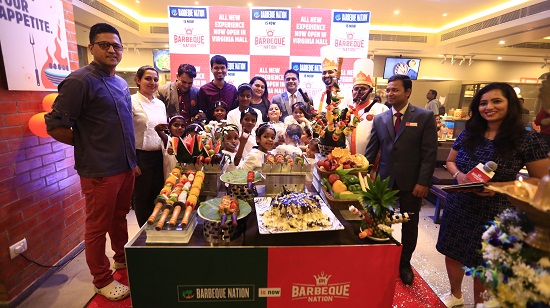
There are 119 Barbeque Nation outlets in India - Karnataka, Tamil Nadu, Kerala, Maharashtra, Gujarat, AP, Telangana, WB, Delhi, Punjab, Northeast - and five international outlets in Dubai and Malaysia.
The latest outlet can seat and serve over 130 guests at a time. The restaurant has been carefully designed keeping in mind the heritage and the philosophy of Barbeque Nation. It sports the new orange logo, with a crown atop the brand name. A fresh take on traditional Barbeque Nation décor, this outlet has different colour schemes, seating arrangement and ambience, and the uniforms of service executives create a modern and upbeat atmosphere at the outlet.
Barbeque Nation, a pioneer of ‘DIY’ (do-it-yourself) cuisine with a concept of the live on-the-table grill, is the largest casual dining brand in the country. The restaurant offers a pre-fixed menu at a fixed price. The menu is drawn from the Mediterranean, American, Oriental, Asian and Indian cuisines. Customers can grill starters in a range of marinades and sauces and enjoy them right off the skewers, at their own tables. Apart from offering a delectable menu, the ambience at the restaurant follows a theme that radiates a contemporary, vibrant and sizzling skewers on tables that double as the live kitchen.
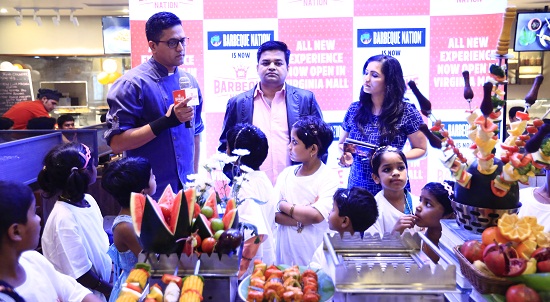
The eat-all-you-can buffet at Barbeque Nation showcases an array of vegetarian and non-vegetarian spread. As for starters, the non-vegetarians can indulge in the famous Mutton Kadhak Seekh, Chilli Garlic Prawns, Ajwaini Fish Tikka, Murg Boti Kebab and much more. While the vegetarians can feast into the mouth-watering Hariyali Kumbh, Pineapple Chaat, Cajun Spice Baby Potato and Punjabi Paneer Tikka.
The dessert section comprises of Walnut Brownie, Assorted Pastry to Angoori Gulab Jamun, Marvel Cake, and Kesari Phirnee. The wide range of Kulfis at the restaurant’s most famous Kulfi Nation counter will leave the guests salivating, where they can add a twist to the kulfi by mixing various flavours into one and create diverse combinations.

As per Aristotle’s beautifully woven words, ‘Well begun is half done’, this speaks volume about the importance of the first step or first impression. It says that to build a strong building the foundation stone needs to be laid correctly.
Every foodie, more than once in his/her life, would have surely given thought to the idea of opening a café or restaurant, where he/ she can exchange the tastes of life with a few bucks.
NRAI IFSR 2016 estimates that the total contribution of the restaurant industry alone will contribute 2.1% to the GDP of India by the year 2021.
Riyaaz Amlani, President, NRAI has said, "The total food services market today stands at INR 3, 09, 110 crores and has grown at 7.7 % since our last report in 2013. This is projected to grow to INR 4, 98, 130 crores at a CAGR of 10% by 2021."
A well framed business plan will not only help in smooth running of the business but also it will fetch customers, clients and most importantly financial loan and financial needs provided by the bank. This business plan will stand tall alongside your ideas and will help you in winning the trust of the investors.
Here are a few points to remember while writing a business plan:
1. Executive Summary:
Do not over explain things in details like never ever disclose the uniqueness of our company or service. Keep it simple yet complicated.
No company displays their core business plan to others, for example the restaurant might allow you to see the kitchen, might let you talk to the chef, but it would never ever let the secret recipe out to the customers, and that is the baseline of restaurant business.
2. Objective of the business:
This is required to put forth the idea and intention of opening a restaurant in front of the bank or the investor, who are going to show you the green flag for the restaurant.
Investors and banks are people, who need to trust that their money is not going in some black hole; they need to get assured that the objective is clear and they are not being fooled or given false hopes.
One needs to keep transparency with the investors, when it comes to financial distribution. It also will help in keeping the focus of the business rather than beating around the bush.
3. Market analysis:
While planning to open a restaurant business, it is very important to study the market and analyse it thoroughly before jumping into the line.
Market analysis will clear the clouds from the surface by addressing some very important questions, such as what are you going to serve to your customers, where does your restaurant stand in the market, is there any demand for any particular cuisines or food type in the market now or in future, who all are your competitors in the market, how can you attract the customers and what are your expectations from the market?
4. Product\ service:
Some things one has to be very clear with self and with the audience is: What is the idea behind your service or your product?
The brain child of the idea should be to provide the best food and best customer service, before calculating or estimating the profit percentage.
Only a happy customer and a happy staff can make you earn profit. So there is no space for quality compromise.
Thus hiring smart and skillful staff is as important as deciding the menu, only then one can expect quality of service is being justified.
5. Financial plan:
The basic of restaurant business or any business is to earn the profit and that is fair enough only if you work on the finance or hire a trust worthy accountant.
The financial plan should reflect the details of how much needs to be invested, how much should be asked from the investors, what is the expected profit, how can more profit be earned and overall financial projection.
Keeping details of profits and loss along with the details of expenditure, paying the staff well, and distribution of profits will show your devotion and dedication towards the business.

How did you enter into the food business?
Hospitality has always been my passion as I’m a big foodie. I always use to visit different restaurants and try different cuisine. The thing which I wanted to create was a unique concept which has never been done before. Wherever you go, there are all speciality restaurants or QSRs and people are really tired of going to the same place again and again. That is how I followed my passion of food in executing something out of the box.
How is your restaurant different from others?
If I ask somebody that why are they visiting a restaurant then they might simply say for food. Definitely food is the core and it has to be at par but what is the next thing which brings back the customer. There has to be some novelty factors. That novelty factor came from our tie up with MTV which is one of the greatest entertainment providers. So by having an alliance with MTV, we make sure that we get best of the talents to come over and show their talent in front of the world. We’re not only promoting vocal talent, we are trying to align a bridge for the people who can’t make it to the television.
How about customer’s response?
People initially had not so much of expectations because they thought it was only borrowing name of the channel and nothing much. But our restaurant was very serious about the concept so for the food we hired celebrity chef Ranveer Brar as a consultant; he gave us ideologies about the cuisine, menu and other important factors. We are very proud to say that he’s on the boat with us now; he owns shares of the company. It speaks volume in itself that Celebrity Chef like Ranveer Brar also firmly believes in our venture.
Tell us something about your journey? How did it happen?
I’m from a business family and we don’t know anything else than business. My father used to organize lottery and there was a point in time in 1992-93 where we were India’s no. 1 lottery organizers. That trade was massive that we never thought of getting into something else. Unfortunately, after sometime Government banned lottery business and by 2000 we were out of trade. At that time, we had our hotels and offices in many regions of India and there were employees for whom we were answerable. Although, we had wealth but we didn’t have business at that time to support them. That was the time when I took a decision that whichever business I’m going to run, I’ll diversify it so that my family and staff do not have to face those tough situations which I had to face. That was a call taken.
How do you think changing market segments affect the food industry?
More people are bringing more ideas which are good for India. Also, we take competition as healthy. Customers today have no choice, they are spoiled for choices and as a restaurateur we must spoil them with choices. There is a loop in the market which we restaurateurs need to fill.
Where could we see all that money investing? What are your expansion plans?
We’re the first one to tie up with an entertainment provider MTV with one of our Group Companies, i.e., Funbars Hospitality Pvt Ltd. Funbars has planned its outlets on PAN India basis, we have our restaurant in Delhi and we’re planning to extend to Mumbai in next coming years.

Small Restaurant Business Plan
Every foodie, more than once in his/her life, has decided to open a café or restaurant, where he/ she can spread the magic of taste in and around the locality.
People from different areas, regions have different taste, some like spicy, some like sweet and some like a mix of both spicy and sweet, one cannot just compromise with the taste, when one is paying his/her hard earned money in it.
NRAI IFSR 2016 estimates that the total contribution of the restaurant industry alone will contribute 2.1% to the GDP of India by the year 2021.
Riyaaz Amlani, President, NRAI has said, "The total food services market today stands at INR 3, 09, 110 crores and has grown at 7.7 % since our last report in 2013. This is projected to grow to INR 4, 98, 130 crores at a CAGR of 10% by 2021."
Here are a few points to help aspiring restaurateurs and entrepreneurs to start a restaurant business:
Restaurant Business Plan : Decide what to offer
Food is one thing, which holds the power to make people forget all the tensions of work or life. And there are plenty o restaurants, where one can find the authentic local cuisines or regional delicacies.
You have to decide before hand what you are going to offer to the customers, who already have their favourite dishes being served in their favourite restaurant. You ought to have something unique and the best to offer or else the customers would not find any reason to visit your restaurant.
Restaurant Business Plan : Thorough Planning
A well begun thing is half done, thus if the concept as to what kind of restaurant you want to open, should it be a high-end fine dine restaurant or for casual diner or cuisine specific or microbrewery or pub or simply quick service restaurant.
Moreover the proper planning with estimated future goals, expected profits and expansion plans will be help the banks in developing trust on your business, where the loans and financial aids come into play.
Restaurant Business Plan : Discover the Location
One can find a number of restaurants in every busy street, which serve from continental to Asian to French to Indian food. Thus look for a location, which does not get lost in the herd of restaurants in that locality.
It should not be far from the herd, neither should it be in the centre, but somewhere near the entrance or ground floor.
Restaurant Business Plan : Look for Investors
Opening a restaurant is no child’s play; it requires a lot of money. Opening a small QSR will cost around 1.2-1.8 crore, that too only to set it up, excluding the production cost and staff salary payments.
Thus look out for investors, who will fuel your dreams to take the first leap. There are plenty of investors and banks ready to help you, provided authentic documents, honest intentions.
Restaurant Business Plan : Licenses and permits
The required documents, licenses and work permits should be kept ready before opening the restaurant.
Obtaining business licenses is the doorway for any business industry to roll.
Proper legal procedures about taking the lease area and license to serve alcohol in that area and proper ventilation in the kitchen, safety standards in case of emergency should be taken care of even before laying the foundation stone of your business.
Restaurant Business Plan : Hire smart staffs
Ultimately, restaurants are known for the kind of food they serve, the hospitality and aura of it.
Thus a chef, who is master in his skills, staffs, who are not just educated robots but smart in their work are important for a restaurant to run smoothly.
Accountant, who will take care of the bills, salary of staffs, profits earned, losses bore and every money related matters.
Feeding a hungry soul is the noblest job on this planet. So go ahead to do a noble job and earn profits out of it as well, doesn’t it sound like a perfect plan!

Janpath, the highly visited streets of Delhi has welcomed the opening of a new restaurant called Janpath Grill House.
As the name explains all, Janpath Grill House is a first molecular grill and buffet which brings the twisted live barbeque concept along with the molecular food.
Placed amidst the ‘Hustle and Bustle’ of Connaught Place, Janpath Grill House is an attempt to unite Delhi and its visitors on food, drinks, and enriching conversation.
Spread across 5000 sqft, the restaurant has total of 120 seating. With aesthetic interiors giving a medieval touch, the ambience of the restaurant is very refreshing to connect with its vibrant consumer base.
Janpath Grill house comes up with redefining the Indian Cuisine by adding concept of molecular food in their menus. It aims at bring the fusion of live Barbeque and molecular food served at counter so that guests at the restaurant can experience the joy of grilling their own vegetarian and non-vegetarian barbeques on live grills embedded in their tables.
The buffet at the restaurant offers an array of vegetarian and non-vegetarian dishes. Starters like Beetroot ki seekh, Naga Chilly Soya, Thai Curry Chicken Tikka deserve a special mention. The Main Course has a number of mouth-watering dishes like Chicken Biryani and Corn Pulao. For dessert, the chefs serve up delectable dishes like Shahi Tukda, Gulab Jamun and Phirni.
“We have worked hard to bring the best in our menu hence we believe that our restaurant will be very well accepted here by winning hearts of people. With the inception of this first restaurant, we are looking forward to open two more outlets of Janpath Grill House in Delhi-NCR by the end of 2017,” Bhanu Nehra, Owner, Janpath Grill House.

The kitchen is designed in the middle of a restaurant and bar, which is typically in the form of a cabinet placed at the height of half or one feet with the sitting arrangement of around 20-30 people, depending on the size of the cabinet.
The concept
Island kitchen has been widely used by the Japanese sushi bars and this has compelled other restaurants and bars to arrange the concept at their outlets. This feature apparently has become popular because of its multiple uses. For example, it can be a place of storage, a place to cook and also a place to sit down and eat your meals.
Commenting on the same, Praful Maru, Director, Flags Restaurant, says, “It is an open kitchen and all kitchen activities are seen by guests.”
Who are using?
In a couple of years, island kitchen has seen increased usage not only by small restaurants, but also by restaurant inside the hotels (in-hotel) and other standalone restaurants. Some of the big names using island kitchen in the hospitality industry are Park Plaza, Black Pepper Restaurants, Ramada Hotel Gurgaon, Blue Bottle and Magnet Cafe.
Talking about the same, Lalit Sharma, Restaurant Manager, Ramada Gurgaon Central, says, “We have a live kitchen at the centre of our restaurant at a height of above half feet from the centre, from where the diners can have a clear view of the hotel.”
Supplier information
With the growing trend of restaurants adopting the island kitchen concept, the kitchen manufacturers have also geared up manufacturing this type of kitchen. Vanya Industrial Equipment-manufacturer of commercial kitchen and equipments from Faridabad, Haryana, has launched the 'Island Kitchen' concept for commercial buyers recently.
Also, manufacturers like Kitchen Concept (A brand of Bharti Refrigeration Works), Varun Inoxware and Kitchnrama, have started making the island kitchen witnessing its increased demand.
Commenting on the same, Dhruv Goel, Director, Varun Inoxware, says, “These custom island kitchens are especially designed to perform all activities of a kitchen with one structure only. The custom island kitchen mainly has four areas.”
Increases efficiency
Since island kitchen encourages direct interaction with guests and is placed inside the restaurant, it makes service faster. It is approachable from all sides and may necessarily not have one entry and exit door. At the same time, the experts are of the opinion that the concept is also good for preparing multi-cuisines simultaneously as the kitchen has about four-five areas to cook.
Investment required
Since the kitchen is open and in direct sight of the guests, it has to be aesthetically designed. The cost of the island kitchen at a restaurant could cost 1.5 times to 2 times higher than a regular kitchen. According to Kumar, the cost of an island kitchen is around Rs 8-10 lakhs. He informs the price range remains same for imported and local island kitchen too. Undoubtedly with its multiple benefits attached island kitchen will see more acceptance in the days to come.
Copyright © 2009 - 2025 Restaurant India.







